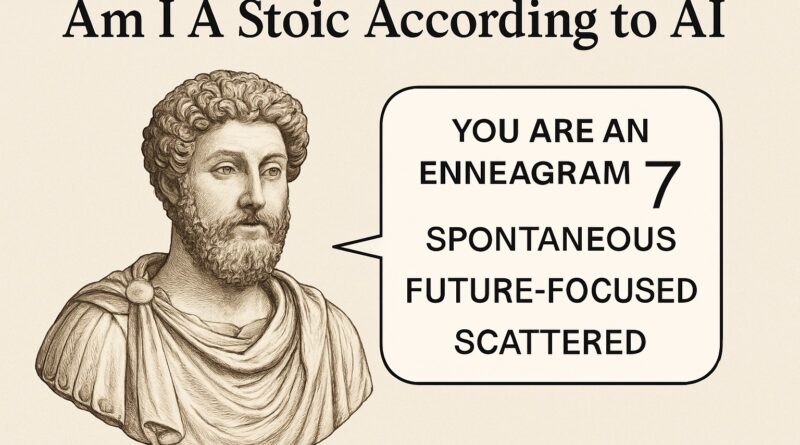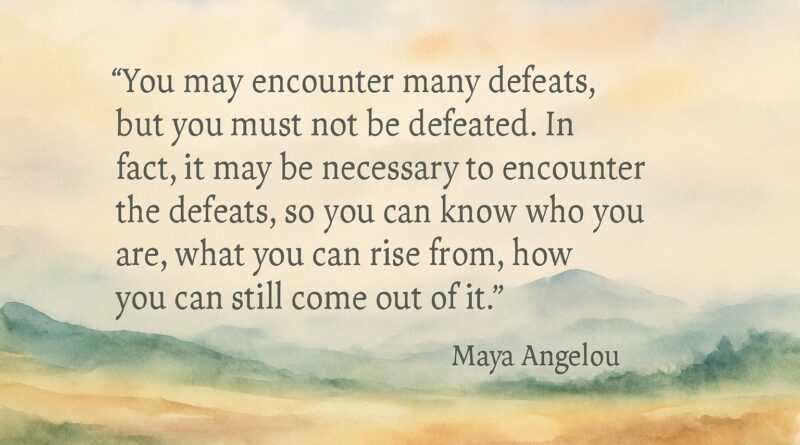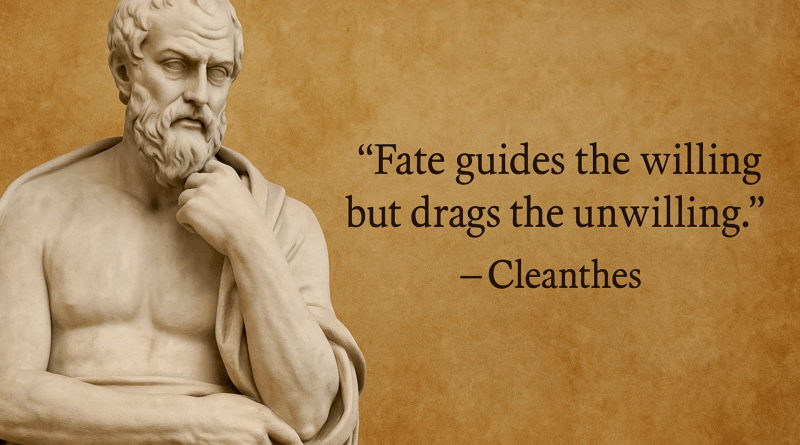Am I A Stoic? AI Says…meh
I get some “Prompt-A-Day” emails. One asked for a 10-question Enneagram quiz. I’m fascinated by these personality tests, though I dislike taking them. This time, instead of answering it myself, I fed the prompt into Claude, an AI system, and answered the quiz it created. What followed was more interesting than I expected.
The analysis suggested I’m an Enneagram Type 7, “The Enthusiast.” Energetic, future-focused, quick to act, and sometimes scattered under stress. It also noted I may lean on a Type 6 wing, which adds loyalty and a concern about what others think. Claude then connected this to Stoicism and told me I had some Stoic tendencies—but also some traits that make the Stoic life harder.
That led to a deeper exchange about the practices I’ve been turning to during hard times. When asked which practice mattered most, I answered quickly: memento mori. For me, remembering death isn’t just philosophy. I grew up in the funeral industry, worked in it during the early days of the AIDS epidemic, and cared for friends in their final days. Those experiences taught me more about life than death—and made Stoic practice feel like coming home.











